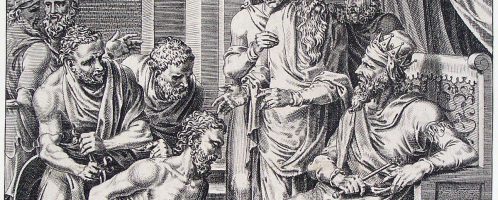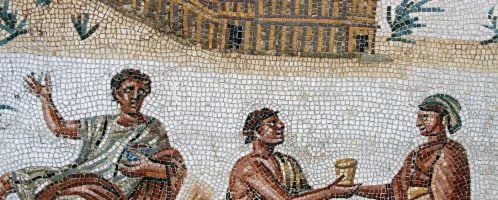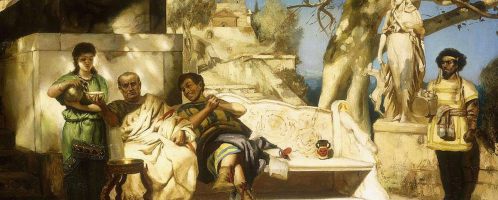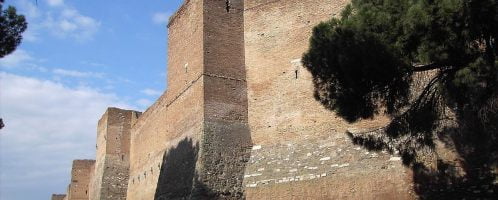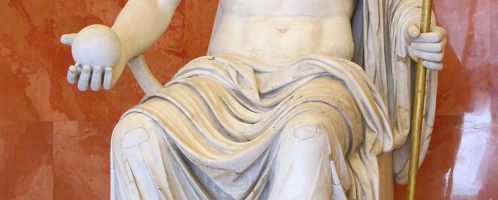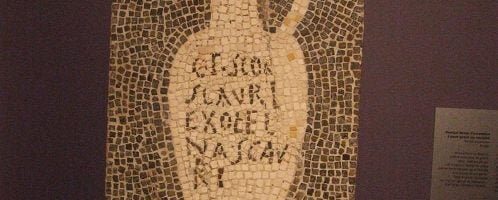The army was the most important element of Roman territorial expansion. Today we commonly associate it mainly with great discipline and organization. In the first centuries of the republic, however, it was not a professional force. It consisted mainly of Roman citizens who were drafted into the army when needed. Moreover, the Roman state did not provide the soldiers with weapons, the funds to purchase them or a pay. Consequently, not every citizen was able to provide himself with proper equipment, which significantly reduced his combat value and, consequently, his social status.
In peacetime, citizens were demobilized and returned to work, mainly on their farms. However, this system eventually stopped functioning. This was caused, among other things, by the rapid expansion of the Roman state. At the time, wars were fought almost continuously, which made it impossible for soldiers to fulfill their family and professional duties. Over time, the Roman army became increasingly professional, and soldiers began to demand fair compensation for their arduous service. Land grants became a particularly popular form of payment.
This not only provided soldiers with a steady livelihood after many years of war but also helped rebuild the agricultural economy, which had been devastated by the ravaging armies of Hannibal in Italy. However, land grants at that time did not have a permanent, institutionalized character and were carried out ad hoc. A revolution in this area came with the reforms of Gaius Marius, which forever changed the nature of the Roman army. From then on, military service became much more professional. Among other things, the length of service was precisely defined, and the recruitment of poor people who did not own property was made possible. Land grants were to serve as compensation for long years of service. In this way, a new social group emerged: the so-called veterans.
The responsibility for paying the soldiers mainly rested with their commanders, which significantly strengthened their relationships. This group quickly began to play an important role in Roman politics. Their mere presence could have a significant influence, as in 101 BCE, when Marius’ veterans appeared in Rome to support his candidacy for the office of consul. In the capital of the empire, street clashes between different rival groups were not uncommon. Veterans, due to their many years of military experience, often participated in these conflicts and usually emerged victorious. In this way, they became a very effective political tool, through which individual commanders could exert influence on the functioning of the Roman state.
A particularly large settlement campaign was carried out by Lucius Cornelius Sulla in 80 BCE. It is assumed that up to 100,000 soldiers may have been rewarded with land grants at that time. In this way, Sulla secured important political and military support. The veterans had to be aware that if their commander lost power, it could result in the confiscation of their new property.
Veterans often contributed to social unrest. Former soldiers, accustomed to a different way of life, lacked experience in managing agricultural estates, which occasionally resulted in them forfeiting their land grants and falling into debt. Some Roman politicians tried to exploit their discontent, including Catiline, who gained the sympathy of many desperate veterans through populist promises of debt relief for citizens.
Veterans played a particularly important role during the civil war between Pompey and Caesar. Many of them enlisted again in the armies of their respective commanders. The winner of this conflict, Gaius Julius Caesar, carried out another land redistribution for his soldiers. However, this time it was done without the displacement of the local population. The land used for this purpose was either part of the ager publicus (public/state land) or was purchased by Caesar himself.
At the end of the Republic, prominent commanders constantly competed for the support of veterans. Due to their many years of military experience, they were excellent soldiers, which could often decide the outcome of battles. This situation occurred, for example, after the assassination of Julius Caesar. Some of the veterans of the late dictator supported one of his commanders, Mark Antony, who promised them that Caesar’s decisions would remain in effect. Others, on the other hand, joined the forces of young Octavian, Caesar’s official heir. He offered 500 denarii to each soldier who joined his army.
Meanwhile, veterans committed numerous abuses against the population of Italy. For example, soldiers sometimes seized more land than they had been allocated without justification. At the same time, they could feel immune to punishment because they were aware of their position. Both commanders were dependent on them and fulfilled their demands. In this context, a brief civil war broke out (the so-called Perusine War, 41–40 BCE) between Octavian, who supported the veterans, and Lucius Antonius, the brother of Mark Antony, who stood up for the wronged population.
In conclusion, veterans as a social group emerged with the military reforms of Gaius Marius, and from that point on, they became one of the most important elements of Roman politics. However, they never formed a separate political faction to fight for their interests. Veterans were simply tools in the hands of commanders, who used them for their own purposes. In return for their loyal service, they were generously rewarded, including through land grants, which often came at the expense of the local population.
- Królczyk K., Weterani w polityce rzymskiej schyłku republiki (od Mariusza do Oktawiana), [w:] Materiały konferencji Komisji Historii Starożytnej PTH, Rzeszów 12-14 września 2000, s. 201–215.


